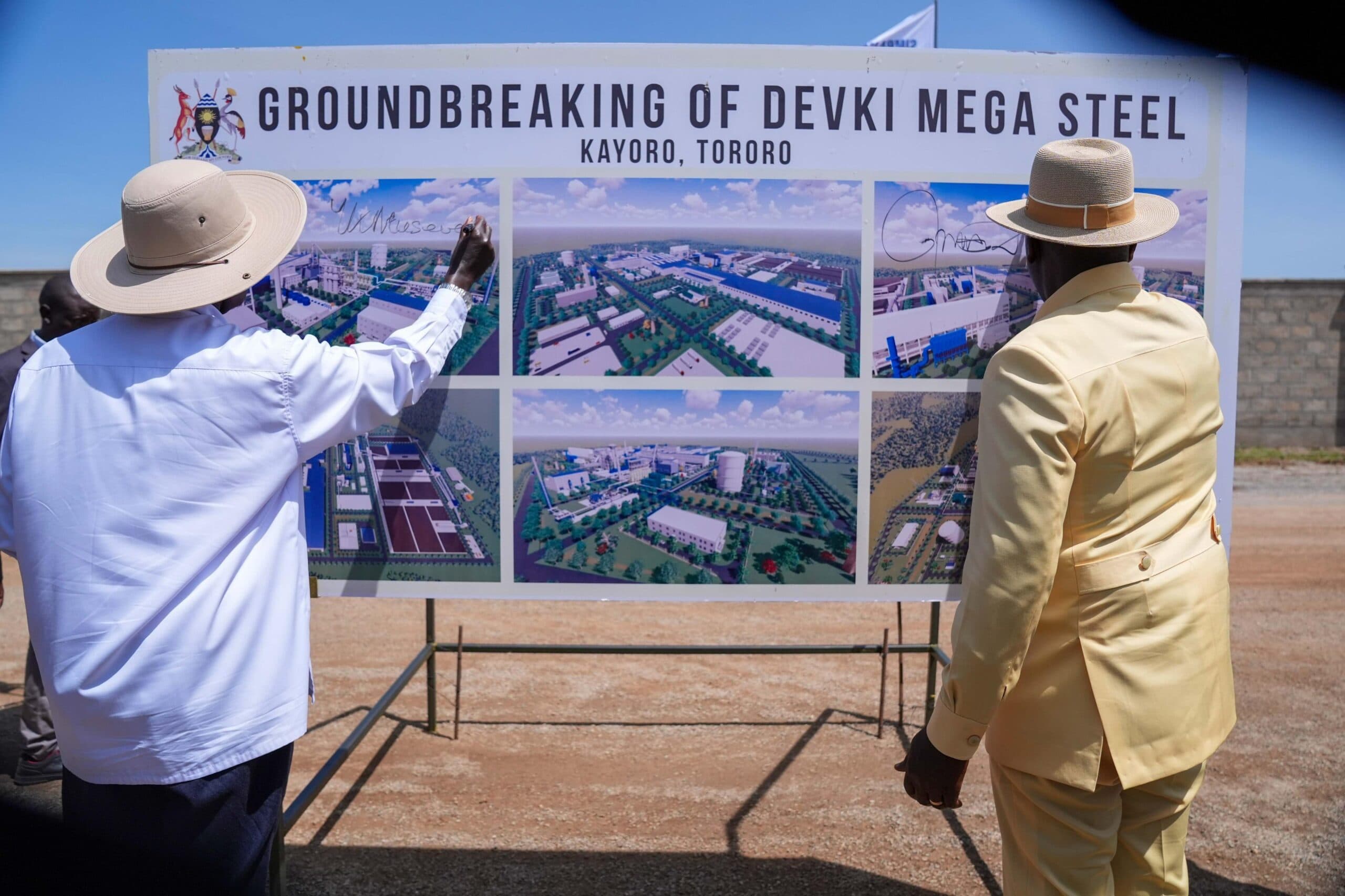We're loading the full news article for you. This includes the article content, images, author information, and related articles.
The landmark Kenyan investment in Tororo, Uganda, aims to create 15,000 jobs and transform East Africa from a steel importer into a self-sufficient industrial hub, reshaping regional trade dynamics.

A monumental step towards regional industrialisation was taken on Sunday, November 23, 2025, as Kenyan conglomerate Devki Group broke ground on a US$500 million steel manufacturing plant in Tororo, Uganda. The ceremony, attended by three East African heads of state—President Yoweri Museveni of Uganda, President William Ruto of Kenya, and President Paul Kagame of Rwanda—underscored the project's immense strategic importance for the entire region.
The facility, spearheaded by Devki Group Chairman Dr. Narendra Raval, is projected to become one of the largest and most advanced steel mills in East and Central Africa. It is designed to produce one million tonnes of steel annually using modern blast furnace technology. Construction is slated for completion within two years, with the first products expected to be dispatched by the end of 2027.
The decision to establish the plant in Uganda is a calculated move to leverage the country's substantial iron ore deposits, estimated at 500 million tonnes. Dr. Raval confirmed that this access to local raw materials, combined with Uganda's favorable tax policies, were key drivers for the investment. The project is poised to drastically alter Uganda's economic landscape, transforming it from a net importer of steel—a trade that costs the country approximately $840 million annually—into a major producer and exporter. Devki Group projects that the plant will generate up to USh2 trillion (approximately $540 million) in annual export earnings for Uganda once fully operational.
Speaking at the event, President Ruto hailed the project as a cornerstone for regional industrial growth and a powerful example of cross-border investment within the East African Community (EAC). "This project will provide jobs for our young people, build new value chains for small and medium enterprises, and create opportunities that extend far beyond Uganda's borders," President Ruto stated on Sunday.
For Kenya, this investment by one of its most prominent industrialists signifies a strategic pivot. While iron and steel products have traditionally been a major Kenyan export to Uganda, this move represents a shift towards investing directly in production within partner states to harness local resources and markets more efficiently. This aligns with the broader goals of the EAC's industrialisation strategy and the African Continental Free Trade Area (AfCFTA), which champion the development of robust regional value chains and reduced reliance on imports.
The African steel market is on a growth trajectory, with demand projected to rise from 39.5 million tonnes in 2024 to 52 million tonnes by 2034, driven by infrastructure development and urbanisation. Kenya's own Affordable Housing Program is a significant driver of this demand. By producing steel within the region, the Tororo plant is expected to stabilize supply and potentially lower costs for major construction projects across the EAC, including in Kenya.
The socio-economic benefits of the plant are projected to be substantial. Devki Group anticipates the creation of 15,000 direct jobs in Uganda, spanning iron ore mining, transportation, and manufacturing. Dr. Raval has pledged that 90% of these positions will be filled by residents from Tororo and surrounding communities, ensuring direct local impact. The company's total workforce across its East African operations is forecast to expand to 20,000 by 2027.
This development follows Devki's established model of situating large-scale industries in rural areas to foster local economic growth, a strategy previously seen with its cement factories in Kenya, Uganda, and Rwanda. The group is also known for its corporate social responsibility initiatives, including extensive school feeding programs in communities hosting its factories.
The success of this large-scale manufacturing venture is intrinsically linked to regional infrastructure development. President Ruto announced in Tororo that Kenya plans to launch the next phase of its Standard Gauge Railway (SGR) extension from Naivasha to Malaba, and eventually into Uganda, in early 2026 to support such industries. This critical transport link will be essential for moving raw materials and finished steel products efficiently across the region.
As East Africa seeks to bolster its economic self-reliance, the Devki steel plant in Tororo stands as a powerful symbol of private sector-led, cross-border collaboration. It represents a strategic effort to add value to the continent's natural resources, create sustainable employment, and build a more integrated and prosperous future for the entire region.
Keep the conversation in one place—threads here stay linked to the story and in the forums.
Sign in to start a discussion
Start a conversation about this story and keep it linked here.
Other hot threads
E-sports and Gaming Community in Kenya
Active 9 months ago
The Role of Technology in Modern Agriculture (AgriTech)
Active 9 months ago
Popular Recreational Activities Across Counties
Active 9 months ago
Investing in Youth Sports Development Programs
Active 9 months ago
Key figures and persons of interest featured in this article